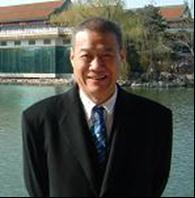英文首页﹀
【5.15 Seminar】Zhi WANG:The Multilateral Nature of Bilateral Trade in the Age of Global Value Chains
2018-11-28
The Multilateral Nature of Bilateral Trade
in the Age of Global Value Chains
Time:3:30pm -5:00pm, May 15, 2018
Venue:Room 359S, Overseas Exchange Center, Peking University
Speaker: Zhi Wang (Professor and Director of Research Center of Global Value Chains at University of International Business and Economics)
【Abstract】
Most economists agree that bilateral trade balances are not a good measure of how well a country is doing regarding to its trade policy. It should not be a focus of national policy because of the multilateral nature of international trade. However, as the bilateral trade balance is frequently headline news and a regular topic in the trade policy debate in the United States, a detailed analysis of economic factors that are driving the U.S.–China trade deficit from a global value-chain perspective, would help the public and policy makers to better understand the deeply rooted and multilateral nature of bilateral trade issues. In addition, understanding the roles that third countries may play in determining bilateral trade balance between two trading nations also helps us to better understand the limited role that national protection policies are able to achieve and the unintended results it may induce in the age global value chains. In this paper, we apply the gross trade accounting method proposed by Koopman, Wang and Wei (2014) and Wang, Wei and Zhu (2013) to analyze third countries’ effect in bilateral trade. We also find that US-China bilateral trade is not special. Similar pattern also can be observed in US-Germany and many other bilateral trade routes.
【Speaker】

Dr. Zhi WANG is a professor and director of Research Center of Global Value Chains at University of International Business and Economics in Beijing. He is also a senior policy research fellow at School of Policy, Government and International Affairs at George Mason University. He obtained his Ph.D in applied economics at University of Minnesota with a minor in computer and information sciences in 1994. He worked as a Lead international economist at Research Division, U.S. International Trade Commission for more than 10 years before his current appointment. He also worked as a consultant for the World Bank in the World Development Report, 1995, as an economist at Purdue University, Economic Research service (ERS) of U.S. Department of Agriculture, Bureau of Economic Analysis (BEA) of U.S. Department of Commerce, and as a senior research scientist at School of Computational Sciences of Gorge Mason University before he joint USITC in 2005. He has long list of publication in world leading economic journals, including the American Economic Review, American Journal of agricultural Economics, Journal of Development Economics, Journal of International Economics. He is the author, co-author, or co-editor of several books and many book chapters, including Global Economic Effects of the Asian Currency Devaluations (PIIE, 1998), The Implications of China-Taiwan Economic Liberalization (PIIE, 2010), and Trade in Value Added: Developing New Measures of Cross-Border Trade (CEPR and the World Bank, 2013).

